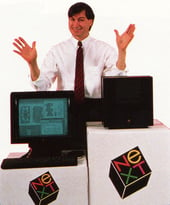 Today I attended NY Edtech Week held at NYU in the heart of Lower Manhattan. Despite being scheduled so close to Christmas, the turnout was large with a high degree of engagement. Through the various "Shark Tank" presentations before potential investors and peers, coupled with several Think Tank sessions that featured some interesting dialogue, this event provided insight into important trends of how technology is and isn't impacting education.
Today I attended NY Edtech Week held at NYU in the heart of Lower Manhattan. Despite being scheduled so close to Christmas, the turnout was large with a high degree of engagement. Through the various "Shark Tank" presentations before potential investors and peers, coupled with several Think Tank sessions that featured some interesting dialogue, this event provided insight into important trends of how technology is and isn't impacting education.
The "Think Tank" sessions included topics such as Corporate Learning, Higher Education, Early Learning, K-12 Education, Experiential Learning, and EdTech Innovation. Changes in the leadership at the U.S. Department of Education was a hot topic, with more questions than answers. Most anticipate much greater focus on demand-driven education options, with disruption in the way states measure and manage school quality.
I'll share more on these issues in an upcoming post, so that the we can now focus on the edtech solutions that were presented.

I've been involved in EdTech for over 36 years, having experimented back in the day with the early Apple I and II products, through the IBM PC/XT/AT, the Macintosh, the introduction of the first local area network, and so on. While working at Princeton University's Center for Advanced Technology back in the late 1980's, our team worked with beta versions of Steve Job's NeXT Computer to evaluate its potential impact on learning strategy.
That historical perspective provides a reality check against the backdrop of energetic presentations and conversations at EdTech Week about how this app or that device is going to revolutionize education. Among the vast array of products presented, there were a few that could become successful. But too many appeared to be a solution in search of a problem, lacking a complete plan of how their idea will become a viable business.
Why is there such a disconnect between these energetic entrepreneurs and real needs/opportunities of schools? (They were primarily in their 20's and 30's, but middle-aged creatives were also abundant) Some propose that edtech developers have an "empathy gap" that limits their ability to understand what teachers really need. Or perhaps they have been mesmerized by the allure of helping children, assuming that economic realities might somehow be suspended because of the social good they provide.
One such developer presented his solution to me in a candid conversation. His energetic body language conveyed the passion he had for the app that he had created. After listening to the pitch and watching the demo, it was evident to me that this was a non-starter. So then the dialogue went something like this:
Me: "Do you have any schools who are paying for this app?"
Developer: "Not yet--we're still pre-revenue."
Me: "Do you understand that with school budgets as they are, less than .4% of the typical operating budget is available to even consider purchasing your app?"
Developer: "Ummm--No."
Me: "Do you have a clear statement about the real problem you are solving from the perspective of the school decision maker?"
Developer: "No, but that's a good idea."
Me: "Have you raised money to fund your research and development so far?"
Developer: "Yes, we're received two grants of $450,000 each."
Me: "Well, I'm not sure what the leadership of that foundation is smoking, but please consider a different approach. Start listening for real problems, paying attention to teachers and administrators to determine where the pain points really are. Figure out how to get paid much earlier in the development cycle, validating the data you are collecting with an economic filter."
Developer: Walked away a little stunned and trying to process the feedback.
My goal was to challenge the confirmation bias that led him to waste so much time, energy, and money on a product that has an extremely slim chance of survival. Hopefully he's now back in the lab working on an innovation cycle that listens more intentionally (which is what most of our schools need as well).
Overall, I found EdTech Week to be a useful forum to engage with entrepreneurs, educators, and investors. This unusual combination of talent provided insights into some trends that I'll share in an upcoming post.


